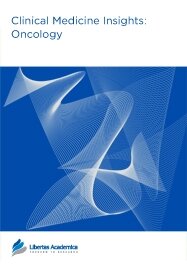

Publication Date: 19 Apr 2011
Type: Original Research
Journal: Clinical Medicine Insights: Oncology
doi: 10.4137/CMO.S7073

Objectives: To determine the incidence and magnitude of the rapid increase in the serum PSA (riPSA) level after high-intensity focused ultrasound (HIFU) therapy for prostate cancer, and its correlation with clinical factors.
Methods: A total of 176 patients with localized prostate cancer underwent HIFU therapy. Serum riPSA was determined on the basis of the same criteria as those for “PSA bounce”, ie, an increase of ≥0.2 ng/ml with a spontaneous return to the prebounce level or lower. Patients were stratified according to neoadjuvant PSA level, T stage, risk group, age, Gleason score, pretreatment PSA level, post-treatment PSA nadir, and number of HIFU sessions.
Results: riPSA was seen in 53% of patients during a median follow-up period of 43 months. A PSA nadir was achieved within 3 months for 85.1% of the treatments. In all cases, onset of riPSA was seen two days after HIFU therapy, and the median magnitude was 23.69 ng/ml. A magnitude of >2 ng/ml was seen in 89.4% of cases. Univariate analysis revealed that patients with riPSA were associated with usage of hormonal therapy and the post-treatment PSA nadir level. Multivariate Cox regression analysis revealed that riPSA and the number of HIFU sessions were predictors of biochemical recurrence. A significant statistical association was found between the presence of riPSA and the risk of biochemical failure only in the low- and intermediate-risk group.
Conclusion: Patients treated with HIFU who experience post-treatment riPSA may have an increased risk of biochemical recurrence, especially in non-high-risk patients.
PDF (524.53 KB PDF FORMAT)
RIS citation (ENDNOTE, REFERENCE MANAGER, PROCITE, REFWORKS)
BibTex citation (BIBDESK, LATEX)
XML
PMC HTML
Publishing in Air, Soil and Water and Water Research was the best experience I have had so far in an academic context. The review process was fair, quick and efficient. I congratulate the team at Libertas Academica for a very well managed journal.Magnus Karlsson (IVL Swedish Environmental Research Institute, Stockholm, Sweden) What Your Colleagues Say
Copyright © 2012 Libertas Academica Ltd (except open access articles and accompanying metadata and supplementary files.)
FacebookGoogle+Twitter
PinterestTumblrYouTube